-
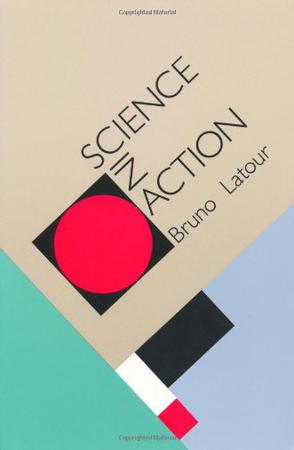
Science in Action
Science and technology have immense authority and influence in our society, yet their working remains little understood. The conventional perception of science in Western societies has been modified in recent years by the work of philosophers, sociologists and historians of science. In this book Bruno Latour brings together these different approaches to provide a lively and challenging analysis of science, demonstrating how social context and technical content are both essential to a proper understanding of scientific activity. Emphasizing that science can only be understood through its practice, the author examines science and technology in action: the role of scientific literature, the activities of laboratories, the institutional context of science in the modern world, and the means by which inventions and discoveries become accepted. From the study of scientific practice he develops an analysis of science as the building of networks. Throughout, Bruno Latour shows how a lively and realistic picture of science in action alters our conception of not only the natural sciences but also the social sciences and the sociology of knowledge in general. This stimulating book, drawing on a wealth of examples from a wide range of scientific activities, will interest all philosophers, sociologists and historians of science, scientists and engineers, and students of the philosophy of social science and the sociology of knowledge. -
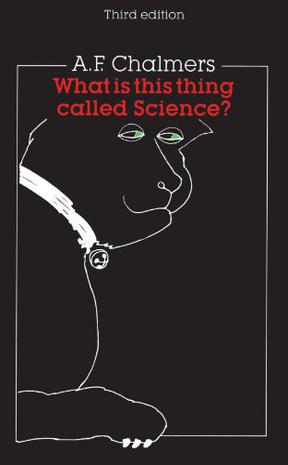
What Is This Thing Called Science?
-
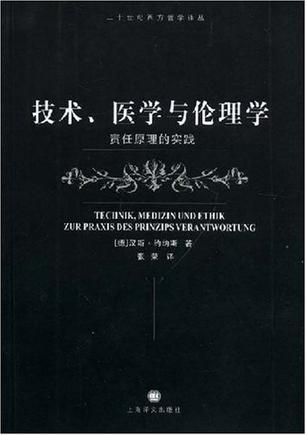
技术、医学与伦理学
汉斯·约纳斯是20世纪著名的哲学家,曾师从胡塞尔、海德格尔和布尔特曼学习哲学、神学和艺术史,1993年逝世。本书作为作者的代表作《责任原理》一书的姐妹篇,有其重要的科学意义。在本书中,作者抨击了科学自由的观念和研究自由的假定,作者认为,在现代自然研究中,从前关于“纯粹的”和“运用的”科学之间、理论与实践之间的区分,已渐渐消失了。二者已经在研究程序中融合在一起。为此,作者提出要对科学进行彻底的自我限制,提出“一个自愿的自我检视观念”。 -
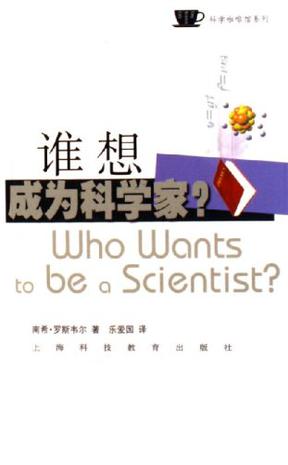
谁想成为科学家
本书系统介绍了与开展科研有关的各方面内容,主要有研究方向的选择,成功的面试,处理与导师的关系,怎样进行演讲、发表高质量的论文、提高知名度等,此外,还包括道德规范和学术欺诈、知识产权保护和技术开发等。 -
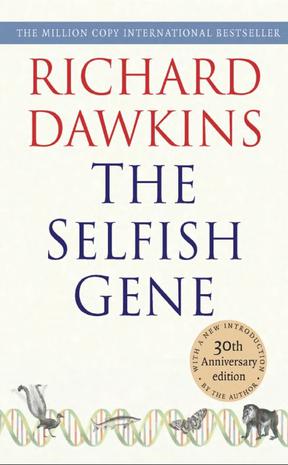
The Selfish Gene
最能代表二十世纪的百大好书之一 像小说般精采的科普书,全球畅销百万册 任何生物,包括我们,都只是求生机器, 暗地里已被输入某些程式,用来保养那些叫做基因的自私分子。 这么说来,我们不都成了基因的俘虏? 种种行为早已由基因命定?真是这样吗? 如果您不愿意成为基因的俘虏,就请先了解《自私的基因》。 这本书充满想像力,就像科幻小说…… 任何生物,包括我们,都只是求生机器, 暗地里已被输入某些程式, 用来保养那些叫做基因的自私分子。 这么说来,我们不都成了基因的俘虏? 但这本书却是实实在在的科学…… 动物也会实施家庭计画? 父母对子女的照顾,会有大小眼吗? 雌性择偶为何比雄性更小心? 工蚁凭什么要为女蚁王卖命? 好人真的会出头吗? 从「自私的基因」观点出发,这些问题全都可以找到答案。 名人推荐 《自私的基因》这本科普书, 让每一位读者读来,都觉得自己一定是个天才。 《纽约时报》 这本书寓意深厚、机敏流露, 实在写得太好了…… 令人忍不住拍手叫好! 梅达华(Peter Medawar),诺贝尔生理医学奖得主 讨论演化的科普书很常见;好的科普书很罕见。 而道金斯的书,堪称绝佳之作。 查诺夫(Eric L. Charnov),《生物评论季刊》 Inheriting the mantle of revolutionary biologist from Darwin, Watson, and Crick, Richard Dawkins forced an enormous change in the way we see ourselves and the world with the publication of The Selfish Gene. Suppose, instead of thinking about organisms using genes to reproduce themselves, as we had since Mendel's work was rediscovered, we turn it around and imagine that "our" genes build and maintain us in order to make more genes. That simple reversal seems to answer many puzzlers which had stumped scientists for years, and we haven't thought of evolution in the same way since. Why are there miles and miles of "unused" DNA within each of our bodies? Why should a bee give up its own chance to reproduce to help raise her sisters and brothers? With a prophet's clarity, Dawkins told us the answers from the perspective of molecules competing for limited space and resources to produce more of their own kind. Drawing fascinating examples from every field of biology, he paved the way for a serious re-evaluation of evolution. He also introduced the concept of self-reproducing ideas, or memes, which (seemingly) use humans exclusively for their propagation. If we are puppets, he says, at least we can try to understand our strings. --Rob Lightner --This text refers to an out of print or unavailable edition of this title. -
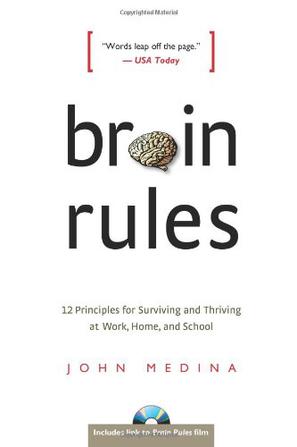
Brain Rules
See how the brain works while using it in the process of reading this book! Most of us have no idea what's really going on inside our heads. Yet brain scientists have uncovered details every business leader, parent, and teacher should know - like that physical activity boosts your brain power.How do we learn? What exactly do sleep and stress do to our brains? Why is multi-tasking a myth? Why is it so easy to forget - and so important to repeat new information? Is it true that men and women have different brains?In "Brain Rules", Dr. John Medina, a molecular biologist, shares his lifelong interest in how the brain sciences might influence the way we teach our children and the way we work. In each chapter, he describes a brain rule - what scientists know for sure about how our brains work - and then offers transformative ideas for our daily lives.Medina's fascinating stories and sense of humour breathe life into brain science. You'll learn why Michael Jordan was no good at baseball. You'll peer over a surgeon's shoulder as he proves that we have a Jennifer Aniston neuron. You'll meet a boy who has an amazing memory for music but can't tie his own shoes.